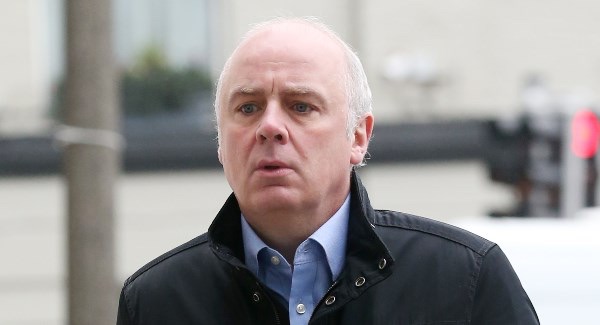
There have been calls for greater efforts to tackle white-collar crime after former Anglo Irish Bank chief executive David ‘The Drummer’ Drumm received only a six year sentence for his central role in a 7.2 billion euro fraud which marked a low point in Ireland’s financial crisis.
A six-month period spent behind bars by Drumm in the US while fighting extradition to Ireland was taken into account.
In an eight-page ruling, the judge said the former chief executive of the bank held “a position of trust, when he authorised, directed and was actively involved in this dishonest and fraudulent scheme.”
A failed effort by Anglo bankers in 2008 to conceal their losses from reckless lending helped bring about a collapse in the bank’s share price, forcing the Dublin government to guarantee and then nationalise the bank. In the process, the state absorbed losses of almost thirty billion euro of Anglo’s losses, or more than 6,200 euro for every man, woman and child in the state.
Drumm showed no emotion, tilting his head back and pouting as the judge handed down her sentence, Judge Karen O’Connor said Drumm’s crimes were “premeditated and planned, and in fact the evidence was that significant planning went into this fraud,”.
The judge dismissed Drumm’s claim that he was convinced to plan and authorise the transactions as part of a ‘green jersey agenda’ by other bankers, politicians and state officials. “Mutual assistance is a far cry from unlawful acts,” she said.
He is only the third Anglo banker to be jailed for fraud. In July 2016, two subordinates of Drumm, Willie McAteer and John Bowe, received sentences of three and a half years and two years respectively. Denis Casey, former chief executive of Irish Life and Permanent was given two years and nine months for related transactions in 2008. Former Anglo chairman Sean ‘Seanie’ FitzPatrick was acquitted of all charges.
Sinn Fein’s Pearse Doherty called upon the government to implement proposals in relation to white collar crime, including allowing class-action lawsuits and to make it a crime to lie to the Central Bank.
“The damage done by Anglo Irish in particular to the State was catastrophic and we should not forget that we are still paying for that damage because of promissory notes and the IBRC liquidation; and will pay for decades to come,” he said.
“However we cannot say that the conviction of David Drumm marks some sort of watershed moment. The fact that just four people have been convicted for their roles in the banking crisis - ten years after the events - is hardly a ringing endorsement of the justice system when it comes to tackling white collar crime.
“It continues to go unpunished, and is in many cases unpunishable, to this today.”
![[Irish Republican News]](https://republican-news.org/graphics/title_gifs/rn.gif)
![[Irish Republican News]](https://republican-news.org/graphics/title_gifs/harp.gif)

